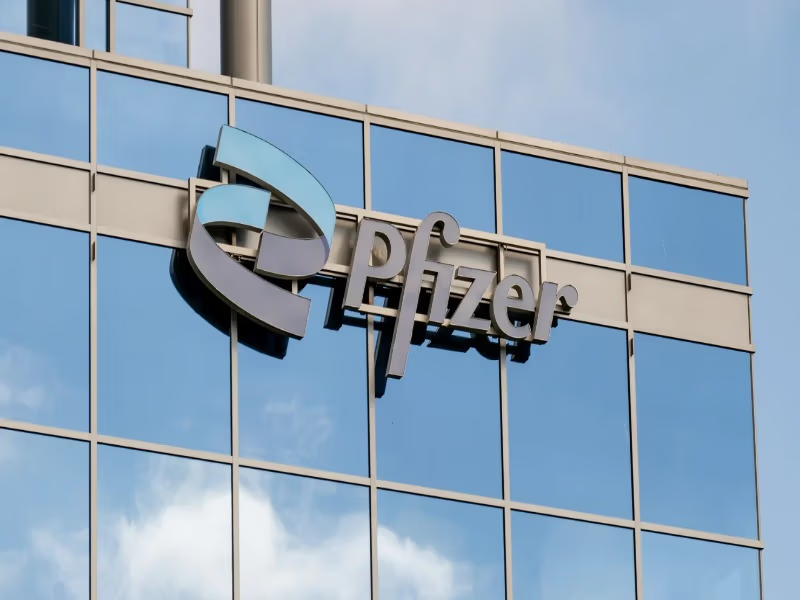American drugmaker Pfizer has secured a $10 billion agreement for obesity drug developer Metsera, ending an intense biotech bidding battle between the New York-based pharmaceutical and Danish competitor Novo Nordisk.
Metsera considered a sweetened Pfizer offer later on Friday, claiming that U.S. antitrust risks in the Novo bid it had earlier called superior.
The Danish obesity drug powerhouse announced on Saturday that it would pull out of the race.
The victory in the bidding war provides Pfizer with a path to the highly profitable obesity drug market, even though it may be years before Metseras treatments actually make it to the market.
However, it is a setback to Novo, which attempts to regain its lost ground to the U.S. competitor Eli Lilly.
Pfizer seemed to have clinched the deal in September, when Novo leaped in with an unsolicited offer last week to trigger a scuffle over a potentially lucrative asset in the expanding weight-loss industry.
Pfizer is seeking to foothold in obesity to overcome prior in-house follies in the manufacturing of weight-loss drugs.
In a statement, Metsera said that Pfizer has also decided to acquire Metsera at a premium of $3.69 percent to its Friday closing price of $86.25 per share.
The bid consists of $65.60 cash in terms of a share and a contingent value right, which will make holders get extra payments of up to $20.65 cash per share.
Therefore, Novo Nordisk announced on Saturday that it was not going to make a higher offer.
In a statement, Danish drugmaker said that “Following a competitive process and after careful consideration, Novo Nordisk will not increase its offer to acquire Metsera.”
A familiar source to Novo reported that also stated that it was building its own pipeline of obesity treatments, and that it would “continue to assess opportunities for business development and acquisitions … that further its strategic objectives.”
One of the sources close to Novo added that its previous unsuccessful offer had been the “maximum value” of Metsera, and the company remained confident in its own obesity drug pipeline, the agreement was never “do or die” for Novo.
Eventually, the person said, “This was always a bolt-on acquisition for Novo.”
The rising game of M&A catapulted Metsera shares over the past week. Since slightly before Novo intervened with its offer until the end of the trading day on Friday, Metsera stocks rose almost 60 percent, putting its market capitalization at almost $8.75 billion.
It seemed, at one point, that Novo had the inside track. Novo has been endeavoring to regain its former dominant status in the obesity drugs that was lost to Eli Lilly.
In its statement on Friday, Metsera said Novo’s proposal presented “unacceptably high legal and regulatory risks” in comparison with the suggested merger with Pfizer and cited the call of the U.S. Federal Trade Commission to consult on the risks of a transaction with Novo.
In a letter sent earlier this week to Novo and Metsera, the regulator explained that their proposed deal posed the risk of antitrust infraction in the United States.
In its statement, Novo reported that it had thought that the structure of its offer was “compliant with antitrust laws.”
Pfizer mentioned in a statement that it was happy to have agreed to a revised deal with Metsera, and will close the merger shortly following the November 13 shareholder meeting of Metsera.
Bernstein analyst, Courtney Breen, claimed that $10 billion price was based on the optimistic forecast about the performance of Metsera in the future, stating that Pfizer would have to take on $11 billion of revenue by 2040, a figure that is nearly twice that of Metsera.
She indicated an increase in skepticism in the case of long-term GLP-1 pricing, which may compress the margins.
The board of Metsera advised its shareholders to ratify the revised Pfizer bid. The biotech firm is already operating at a loss, and analysts forecast further losses as its drugs are still in their development stage.
The bidding battle between Pfizer and Novo took the price from Pfizer’s $7.3 billion offer in September.
Former Pfizer Research and Development Chief John LaMattina informed Reuters that the fight was similar to the 2000 hostile acquisition of Pfizer by Warner-Lambert for $90 billion, an attempt to acquire Lipitor, a cholesterol-lowering drug.
He said, “While this is a smaller deal, Pfizer must believe that Metsera’s pipeline is key for its future.”
The analysts and investors have cited the unusually intense struggle to control Metsera, whose early-stage obesity treatments are yet to be proven, as a possible strategic breakthrough in a market that some analysts project will grow to $150 billion by the start of the next decade.
Managing Director of RA Capital Management, Peter Kolchinsky, reported, “This is a Game of Thrones-level of play,” he stated before the final bid was accepted.
According to Leerink Partners analyst David Risinger, the projected sales of the experimental obesity medications, MET-097i, a GLP-1 injectable, and MET-233i, which resembles a pancreatic hormone amylin, are expected to hit a total of about 5 billion when combined, in peak sales.






